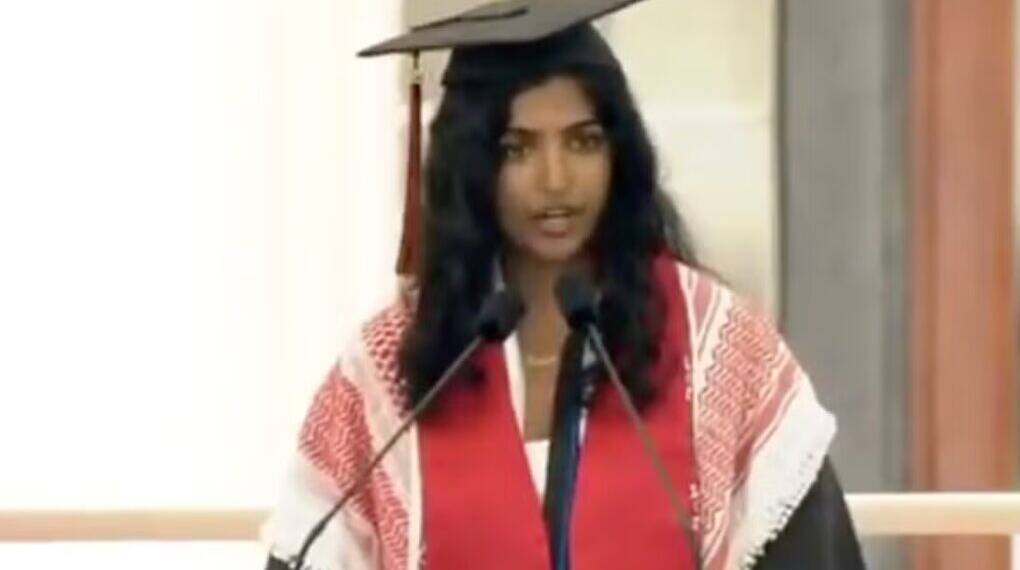The Massachusetts Institute of Technology (MIT) has barred student class president Megha Vemuri from attending her graduation ceremony after she delivered an unsanctioned pro-Palestinian speech during a university event on Thursday. Vemuri, who was scheduled to serve as marshal for the Class of 2025 commencement, was notified by MIT Chancellor Melissa Nobles that she and her family were prohibited from attending most graduation-related events on Friday.
The decision has ignited national attention amid ongoing student protests and debates over university ties to Israeli institutions during the Israel-Hamas war.
Vemuri, an Indian American student from Alpharetta, Georgia, delivered the speech during the OneMIT commencement event while wearing a red keffiyeh — a symbol of Palestinian solidarity. She strongly criticized Israel’s military actions in Gaza and accused MIT of complicity through its research affiliations.
“We are watching Israel try to wipe Palestine off the face of the earth, and it is a shame that MIT is a part of it,” Vemuri said in her address, which was met with both applause and some jeers.
Vemuri called for MIT to sever ties with the Israeli military and endorsed an arms embargo. She also commended fellow students for voting to cut those ties in previous student government resolutions.
The speech was not the version pre-approved by MIT administrators. In response, MIT stated that Vemuri had “deliberately and repeatedly misled Commencement organizers,” and described her remarks as a disruption of a major institutional event.
“MIT supports free expression,” a university spokesperson said, “but stands by its decision.”
President Sally Kornbluth, who spoke immediately after Vemuri’s remarks, did not directly address the speech but emphasized that the day was about celebrating graduates.
“There is a time and a place to express yourselves,” Kornbluth said, “and you will have many, many years to do it.”
The controversy has divided the campus and drawn attention from national media and advocacy groups. Jewish and pro-Israel students and faculty criticized both Vemuri and MIT’s leadership, with some calling for Kornbluth’s resignation. Meanwhile, pro-Palestinian supporters praised Vemuri’s courage and condemned MIT’s disciplinary action as censorship.
This marks at least the third instance in 2025 of commencement speakers at major U.S. universities using their platform to speak out against Israel’s actions in Gaza, following similar incidents at New York University and George Washington University — both of which led to disciplinary actions.
Vemuri graduated with degrees in computer science, neuroscience, and linguistics and was involved in the MIT group Written Revolution. She has also worked as a research intern with the UCT Neuroscience Institute in South Africa.
MIT has not confirmed whether Vemuri’s diploma has been formally withheld, though she was barred from attending the ceremony itself.
The incident occurs amid heightened tensions on American campuses over the war in Gaza, freedom of speech, and the role of academic institutions in global conflicts. The conflict, which began with Hamas’ attack on Israel on October 7, 2023, has led to over 52,000 reported deaths in Gaza and sparked international outcry over Israel’s military response.
As elite universities across the U.S. continue to grapple with internal divisions and external political pressures, the MIT incident underscores the volatile intersection of student activism, institutional policy, and the global politics of war.








